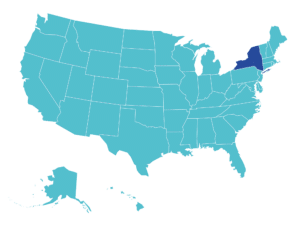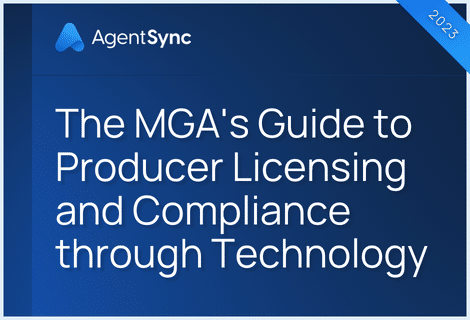


Any confusion in regulatory requirements has the potential to create a bureaucratic disaster for the state regulators tasked with enforcing them. As a result, regulatory entities often try to set clearly defined lines in instances where laws present even an inch of uncertainty. But tracking state-by-state updates can be extremely time-consuming; that’s why we’re here to help.
Due to confusion around broker entity licenses and individual licenses for excess lines, the Excess Line Association of New York (ELANY) posted a bulletin on Aug. 16, 2021, to clarify the state regulators’ standing on the two distinct licenses and their compliance requirements.
More about ELANY
ELANY isn’t a regulator. Instead, ELANY is a nonprofit advisory association that facilitates and encourages compliance with laws pertaining to excess lines. ELANY does this in a few different ways, such as:
- Acting as a go-between for brokers and regulators
- Conducting financial reviews
- Lobbying regulators and legislators
- Providing up-to-date information on regulatory requirements and excess lines laws
ELANY plays an important role in the insurance compliance landscape. By defining the state’s expectations of licensing requirements, ELANY acts as a reference point for brokers seeking to understand their licensing requirements. Remember: Misinterpreting licensing requirements can expose your company to costly regulatory actions.
Since every state has different licensing requirements, and those state-by-state requirements are updated regularly, consulting state-specific entities for the states within which you operate is always a key component to good compliance management. Fortunately for brokers operating in New York, ELANY posts regular bulletins clarifying existing requirements and notifying brokers of new updates to those requirements. Those bulletins can be found here.
What’s the problem?

The bulletin posted by ELANY on Aug. 16 seeks to address a problem relating to broker entities in New York.
According to ELANY, if a broker operates as a corporation, LLC, or partnership in the state of New York, then that entity must be licensed with the state and have one or more individuals acting as a sublicensee for the entity. This isn’t an either-or licensing situation.
While that sounds straightforward enough, it seems ELANY encountered entities trying to operate solely under a licensed individual within the company – whether a principal or employee. And, according to New York, that just won’t do.
Why is an entity license necessary if an individual in the entity is licensed?
It’s illegal for any entity or individual to receive insurance commissions payouts if unlicensed. On top of that, payouts must be received and held in a trust account named and maintained by the licensed entity or individual.
Now, this is where things get interesting.
Entities must maintain the required premium trust account and receive commissions from policy sales in its licensed entity name, rather than an individual’s name. The exception here is if an individual maintains sole proprietorship of an entity, then it’s perfectly legal for that individual to operate through an individual license and maintain the premium trust account and receive commissions in their own name.
What ELANY found was that, instead of being licensed, entities were maintaining premium trust accounts and receiving commissions in their own unlicensed entity name and relying on the individually held license of a principal or employee. That just won’t do and can land an entity, and those individuals involved, in some regulatory hot water.
Staying current with state insurance regulations
Everyone who operates in the field of insurance needs to meet regulatory requirements and these requirements come from a whole slew of entities. Keeping track of which requirements come from where and who they’re relevant for can cause a major headache for compliance managers.
Fortunately, it doesn’t need to be that way. Here at AgentSync, we do the hard work for you: Keeping an eye on state-by-state requirements, we make sure our customers and their brokers maintain the licenses they need to stay compliant in the states within which they operate. Learn how AgentSync can help your company manage individual license compliance.

